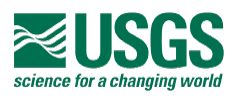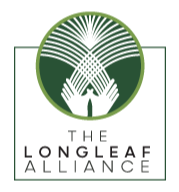Fact Sheets
SE FireMap Fact Sheet
This document highlights the overall SE FireMap initiative – offering a technical summary of the project’s background, development process, timeline, and objectives.
Aquatic Connectivity Framework (ACF) Fact Sheet
The Aquatic Connectivity Framework (ACF) is a WLFW partnership effort that brings together public and private partners to tackle critical threats to watersheds across 16 states in the eastern and central U.S.
Aquatic Connectivity Framework (ACF) Fact Sheet
The Aquatic Connectivity Framework (ACF) is a WLFW partnership effort that brings together public and private partners to tackle critical threats to watersheds across 16 states in the eastern and central U.S.
American Black Duck Fact Sheet for Delaware Residents
The current fact sheet and applicable practices for the American Black Duck NRCS Working Lands for Wildlife Program in Delaware.
American Black Duck Fact Sheet for Eastern Shore Virginia Residents
The current fact sheet and applicable practices for the Working Lands for Wildlife Black Duck Program in Virginia.
Maryland Shallow Water Area Fact Sheet
The state of Maryland NRCS fact sheet for shallow water areas, a common practice used in creating or restoring habitat for waterfowl use
Maryland 314: Brush Management
This standard allows for the removal and management of woody plants including invasive and noxious plants. Using this standard will allow landowners with existing degraded wetlands or waterfowl shallow water areas to clean up the area and return it to early successional vegetation.
Maryland 657: Wetland Restoration
This standard consists of returning a wetland and its functions to a close representation of its original condition prior to being disturbed. It applies for areas with hydric soils that have been converted to non-wetland by filling, draining, or other hydrology changes.
Delaware 644: Wetland Wildlife Habitat Management
This practice is supplemented with other wetland standards to provide financial assistance in the management of a wetland for wildlife habitat.
ANCHOR Fact Sheet (Español)
ANCHOR Fact Sheet Español. ANCHOR es un nuevo enfoque de conservación que construye redes de área para conectar el hábitat y optimizar la resiliencia. El enfoque orienta las inversiones en ubicaciones estratégicas de “anclaje” para conectar las poblaciones de vida silvestre, mejorar la resiliencia del paisaje y fortalecer las economías rurales.
ANCHOR Fact Sheet
ANCHOR is a new conservation approach that builds Areawide Networks to Connect Habitat and Optimize Resiliency. The approach guides investments in strategic “anchor” locations to connect wildlife populations, enhance landscape resiliency, and strengthen rural economies.
DOI Nature-based Solutions Roadmap
The purpose of the Department of the Interior Nature Based Solutions Roadmap is to provide Department of the Interior (DOI) staff with consistent and credible information about nature-based solutions, such as which strategies match certain conditions and goals, what co-benefits they are likely to provide, example projects, and additional resources for project planning, construction, and monitoring.
SE FireMap Documentation
Resources related to the Southeast FireMap version 1.0. Includes technical fact sheet, product information, user guide, data use agreement, and introductory webinar.
Guidebook for Prescribed Burning in the Southern Region
Learn how to plan, conduct and evaluate prescribed burns with this new Guidebook designed for burners of all skill levels. This book takes you step-by-step through the prescribed burning process in addition to providing more in-depth chapters on many of the concepts.


























